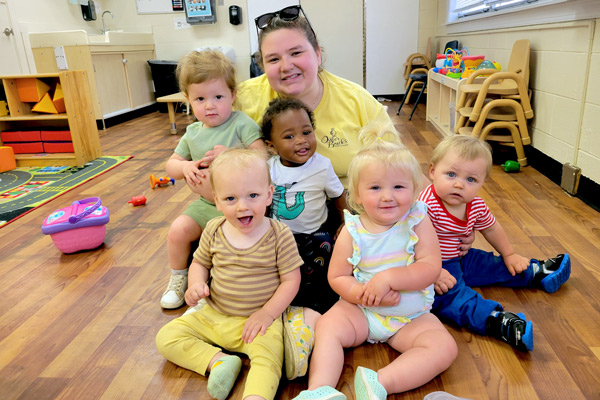
Daycare plays a pivotal role in unlocking the potential of children in their early years of development. It provides a nurturing environment where children can learn, grow, and thrive under the care of trained professionals. The key role of daycare in early childhood development cannot be overstated, as it has a lasting impact on a child's cognitive, emotional, and social development.
One of the primary benefits of daycare in Ryde is the opportunity for children to interact with their peers. This social interaction is crucial for the development of social skills, empathy, and emotional intelligence. Through play and group activities, children learn how to communicate, share, and cooperate with others. These essential social skills are foundational for success in school and later in life.
Furthermore, daycare provides a structured environment that fosters learning and development. Trained educators create age-appropriate activities that stimulate cognitive development and creativity. Through storytelling, music, art, and play, children are encouraged to explore their interests and talents. These activities help children develop critical thinking skills, problem-solving abilities, and a love for learning.
In addition to social and cognitive development, daycare also plays a key role in supporting emotional well-being. Children may experience a range of emotions throughout the day, and daycare provides a safe space for them to express themselves and learn how to regulate their emotions. Caregivers are trained to provide emotional support and guidance, helping children build resilience and cope with stress and challenges.
Daycare also plays a crucial role in supporting working parents. By providing a safe and reliable environment for children, daycare allows parents to pursue their careers and maintain a healthy work-life balance. This support is essential for the economic stability of families and the overall well-being of children.
Research has shown that children who attend high-quality daycare programs experience long-term benefits in terms of academic achievement, social skills, and emotional well-being. These children are more likely to perform well in school, have positive relationships with peers and adults, and exhibit greater self-regulation and resilience. The positive impact of daycare on early childhood development can have lasting effects into adulthood.
It is important for parents to carefully consider the quality of daycare programs when choosing a provider for their child. High-quality daycare programs have trained educators, a stimulating learning environment, and a focus on promoting social-emotional development. Parents should visit potential daycare facilities, meet with caregivers, and ask about the curriculum and daily activities to ensure that their child will receive the best possible care and support.
In conclusion, daycare plays a key role in unlocking the potential of children in their early years of development. By providing a nurturing environment, fostering social, cognitive, and emotional development, and supporting working parents, daycare sets children on a path to success in school and in life. The impact of high-quality daycare programs on early childhood development cannot be overstated, and parents should prioritize finding the best possible care for their children to ensure their long-term well-being and success.
